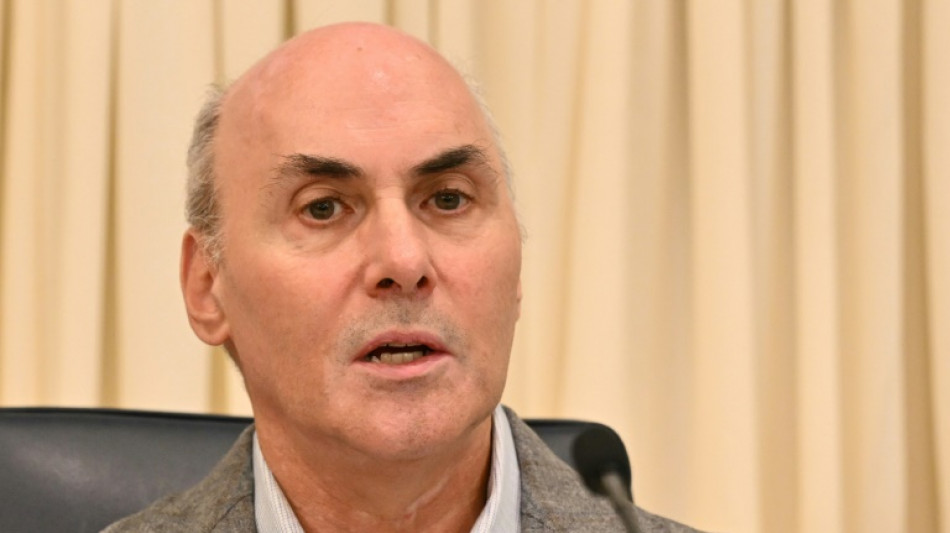
-
 Scandic Trust Group strengthens sales network with First Idea Consultant
Scandic Trust Group strengthens sales network with First Idea Consultant
-
France urges EU to sanction Shein platform

-
 France opt for Le Garrec as Dupont replacement for South Africa Test
France opt for Le Garrec as Dupont replacement for South Africa Test
-
Turmoil in tiaras at Miss Universe pageant in Thailand

-
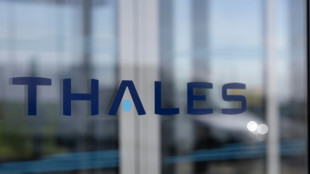 Probe into Thales defence group looking at Indonesian contract
Probe into Thales defence group looking at Indonesian contract
-
US to cancel flights as longest govt shutdown drags on
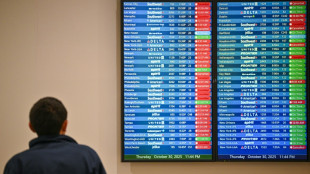
-
 Home in Nigeria, ex-refugees find themselves in a war zone
Home in Nigeria, ex-refugees find themselves in a war zone
-
Doncic's Lakers hold off Wembanyama's Spurs, Blazers silence Thunder
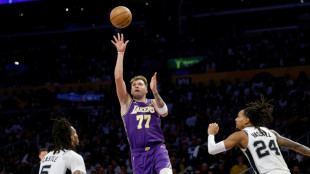
-
 For Turkey's LGBTQ community, draft law sparks existential alarm
For Turkey's LGBTQ community, draft law sparks existential alarm
-
Musk's $1 trillion pay package to face Tesla shareholder vote
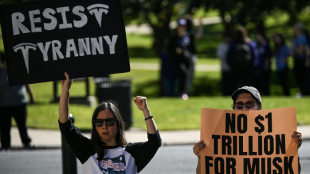
-
 Tonga rugby league star out of intensive care after seizure
Tonga rugby league star out of intensive care after seizure
-
Argentine ex-president Kirchner goes on trial in new corruption case

-
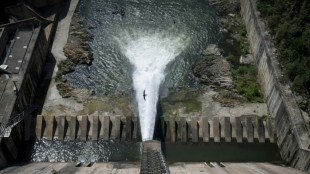 Dams, housing, pensions: Franco disinformation flourishes online
Dams, housing, pensions: Franco disinformation flourishes online
-
Endo returns as Japan look to build on Brazil win

-
 Franco captivates young Spaniards 50 years after death
Franco captivates young Spaniards 50 years after death
-
German steel industry girds for uncertain future

-
 IPL champions Bengaluru could be sold for 'as much as $2 billion'
IPL champions Bengaluru could be sold for 'as much as $2 billion'
-
Budget impasse threatens Belgium's ruling coalition

-
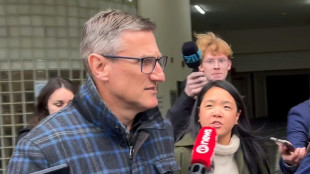 New Zealand ex-top cop admits to having material showing child abuse, bestiality
New Zealand ex-top cop admits to having material showing child abuse, bestiality
-
BoE set for finely balanced pre-budget rate call

-
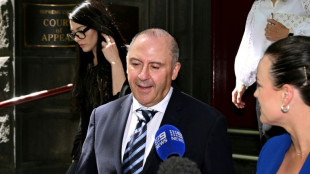 Australian kingpin obtains shorter sentence over drug charge
Australian kingpin obtains shorter sentence over drug charge
-
Weatherald's unenviable Ashes task: fill giant hole at top left by Warner

-
 Ovechkin first to score 900 NHL goals as Capitals beat Blues
Ovechkin first to score 900 NHL goals as Capitals beat Blues
-
On Mexico City's streets, vendors fight to make it to World Cup
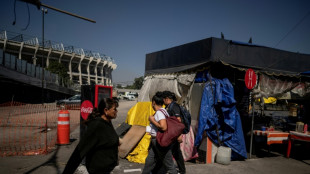
-
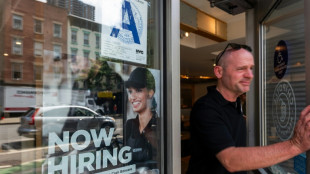 Asian markets bounce from selloff as US jobs beat forecasts
Asian markets bounce from selloff as US jobs beat forecasts
-
Philippine death toll tops 140 as typhoon heads towards Vietnam

-
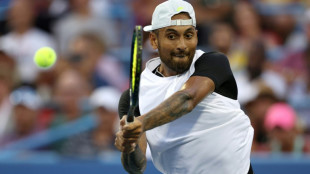 Kyrgios targets 'miracle' Australian Open return after knee improves
Kyrgios targets 'miracle' Australian Open return after knee improves
-
'AI president': Trump deepfakes glorify himself, trash rivals

-
 Belgium probes drone sightings after flights halted overnight
Belgium probes drone sightings after flights halted overnight
-
Five things to know about 'forest COP' host city Belem
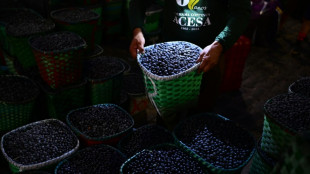
-
 World leaders to rally climate fight ahead of Amazon summit
World leaders to rally climate fight ahead of Amazon summit
-
Engine fell off US cargo plane before deadly crash: officials

-
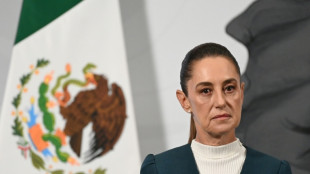 Mexican leader calls for tougher sexual harassment laws after attack
Mexican leader calls for tougher sexual harassment laws after attack
-
Meghan Markle set for big screen return: reports

-
 Japan deploys troops after wave of deadly bear attacks
Japan deploys troops after wave of deadly bear attacks
-
FIFA announce new peace prize to be awarded at World Cup draw in Washington

-
 Australia's Cummins hints at return for second Ashes Test
Australia's Cummins hints at return for second Ashes Test
-
Boeing settles with one plaintiff in 737 MAX crash trial

-
 Man City win as Inter stay perfect, Barca held in Champions League
Man City win as Inter stay perfect, Barca held in Champions League
-
French superstar DJ Snake wants new album to 'build bridges'
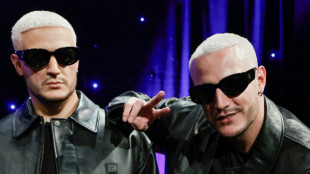
-
 Barca rescue draw at Club Brugge in six-goal thriller
Barca rescue draw at Club Brugge in six-goal thriller
-
Foden hits top form as Man City thrash Dortmund

-
 NBA officials brief Congress committee over gambling probe
NBA officials brief Congress committee over gambling probe
-
Inter beat Kairat Almaty to maintain Champions League perfection

-
 Newcastle sink Bilbao to extend Champions League winning run
Newcastle sink Bilbao to extend Champions League winning run
-
Wall Street stocks rebound after positive jobs data
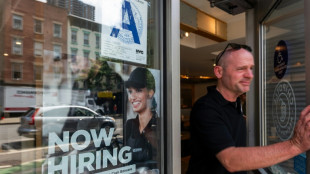
-
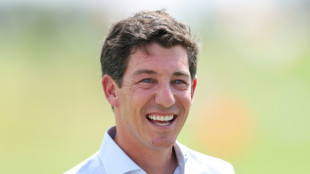 LPGA, European tour partner with Saudis for new Vegas event
LPGA, European tour partner with Saudis for new Vegas event
-
Eyes turn to space to feed power-hungry data centers

-
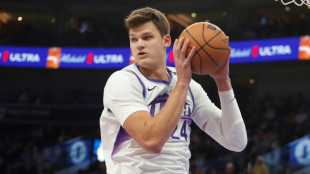 Jazz lose Kessler for season with shoulder injury
Jazz lose Kessler for season with shoulder injury
-
League scoring leader Messi among MLS Best XI squad


Nobel-winning mRNA pioneer Weissman now wants to defeat Covid forever
From developing a one-and-done coronavirus shot to overcoming misinformation and global vaccine inequity, Nobel prize winner Drew Weissman says that at 64, he's only "speeding up."
The University of Pennsylvania immunologist was awarded the biggest accolade in medicine on Monday for his pioneering research on messenger RNA, the technology behind Covid-19 vaccines that changed the course of the pandemic.
"What happened is I got a cryptic text from Kati around four in the morning," he said in an interview with AFP, referring to his old friend, collaborator and Nobel co-winner Katalin Kariko.
She had received word from the Nobel committee that they had finally won after being passed over the past couple of years -- but they weren't sure it was real until the official announcement.
"We were wondering if somebody was pulling a prank on us!" he said.
The honors have been piling up for Weissman: the Lasker Award, the Breakthrough Prize, and many more -- though he says the Nobel was always the "ultimate," something he had dreamed of since the age of five, when he first became interested in how things work.
Having just turned 64, and helped the world tame a virus that killed an estimated seven million worldwide, he could be forgiven for considering a well-earned retirement.
But Weissman says there's too much work left to be done. "I'm speeding up and my wife and family aren't happy about it," he joked. "I'm in a good spot."
- 'Ultimate' vaccine -
First on his quest: how to improve upon Covid-19 mRNA vaccines, which have saved countless lives by protecting incredibly well against severe disease and death.
Weissman says the next step in their evolution is universal shots that will be far better than the annualized boosters currently on offer.
A "pan-coronavirus" vaccine he is working on with an international team "should cover all future variants -- and any bat coronaviruses that might cross over into people," he said.
Though coronaviruses are known to mutate fast, Weissman teamed with AI specialists to comb through their structures, which contain roughly 30,000 "nucleotides" or building blocks, in search of "conserved regions" that stay the same.
They have shown it works in animals, and now hope to begin human trials within the next six months. "We think that's going to be the ultimate vaccine," he said.
In all, his lab is developing 20 different mRNA vaccines, with seven already in human trials, protecting against everything from rare autoimmune disorders to food allergies and heart disease.
"We've really expanded our scope of research -- and that's been allowed because the world... now recognizes RNA as important," he said.
It's a far cry from Weissman's anonymity during the 1990s and 2000s when he and Kariko made their key discoveries about how mRNA could be harnessed.
Unlike traditional vaccines, messenger RNA vaccines deliver genetic instructions to turn some of the host's cells into virus-like particles, training the immune system for when it encounters the real deal.
- Misinformation and equity -
Of course, scientific advances need to reach people to make a difference, and to this end Weissman is part of a group working to tackle hesitancy at the global level.
"There's one group who refuse to take the vaccine no matter what -- they follow politicians who submit laws to try to make RNA vaccines illegal in the United States," said Weissman, referring to a Republican-backed bill in Idaho.
But those on the fence -- including conservatives, African Americans, the elderly and others -- may respond to targeted messaging that'll resonate, he added.
He's also involved in setting up production sites in low and middle-income nations, with the first, in Thailand, developing dengue and tularemia vaccines.
It's "an incredibly important thing to give access to RNA technology to every part of the world," he said. "Pfizer and Moderna aren't going to have a big interest in making a vaccine for tularemia," a rare but serious zoonotic disease that is virtually absent in developed countries.
"But if they've got production sites and researchers locally, who want to do it, then they've got everything they need."
U.Maertens--VB




